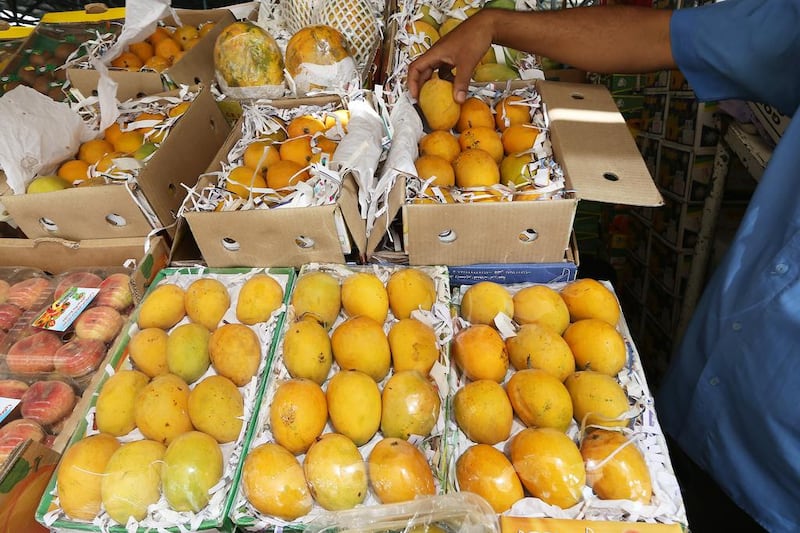Indian prime minister Narendra Modi came to power promising job creation and, among other things, the reform of the agricultural sector. Our story about unacceptably high levels of pesticides and other chemicals in some food imported from India reveals a fertile area for Mr Modi’s campaign promises to be realised. While the UAE conducts spot checks on food consignments entering the country, the onus falls squarely on the Indian government and on Indian farmers to export quality products in the first place.
Issues with Indian food exports failing to fall in line with international food safety standards are not new. A lack of regulatory oversight in the agricultural industry and the extraordinarily high amount of synthetic pesticides and ripening agents used in the industry are the chief culprits.
The UAE has decided that the entry of chilli peppers, mangoes and cucumbers will be barred unless there is an official residue analysis report provided for each consignment. The barring of imports could spell disaster for Indian producers because the UAE is one of the top four markets for Indian fruit and vegetables and one of the world’s biggest importers of its mangoes and onions.
The solution to this problem boils down to simple economics. With the boom in popularity of organic produce around the world, it is clear that customers in India’s key export markets demand high-quality and safe produce. While authorities in the UAE have taken swift action to ensure the Indian food consignments abide by safety regulations, consumers will simply look to other markets if the problems continue.
Thus, it is in the interest of Indian producers to push for better regulation and safety standards at home. In April, Mr Modi unveiled a measure to use digital platforms to regulate wholesale agricultural markets in the state of Karnataka. It is hoped that the new trading mechanism will ensure that farmers get a fair price for their produce. These so-called e-markets will also streamline the agricultural industry and remove corruption.
Such an initiative is needed in the regulation of food exports. The introduction of better controls with clear guidelines for acceptable produce would dramatically help Indian’s agricultural industry. Time is running out for Indian farmers as consumers around the world have become more savvy and have options closer to home.





